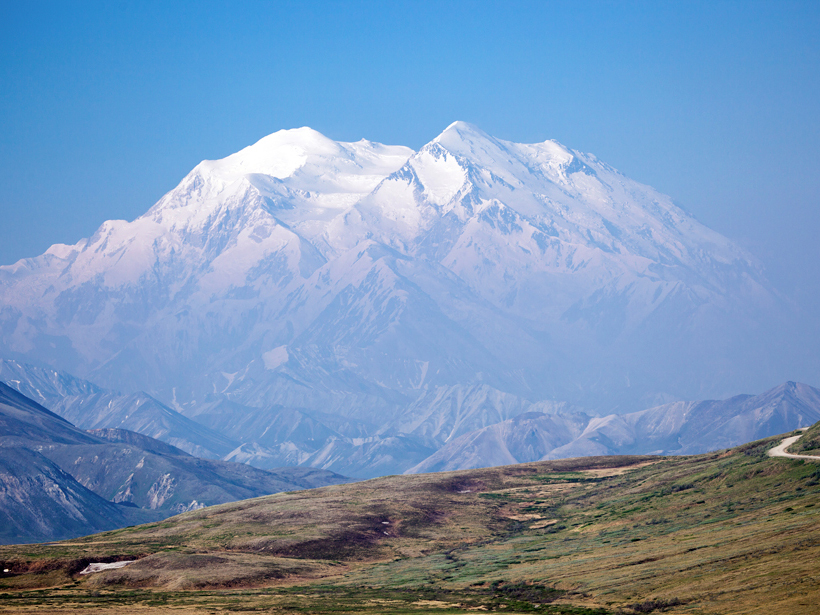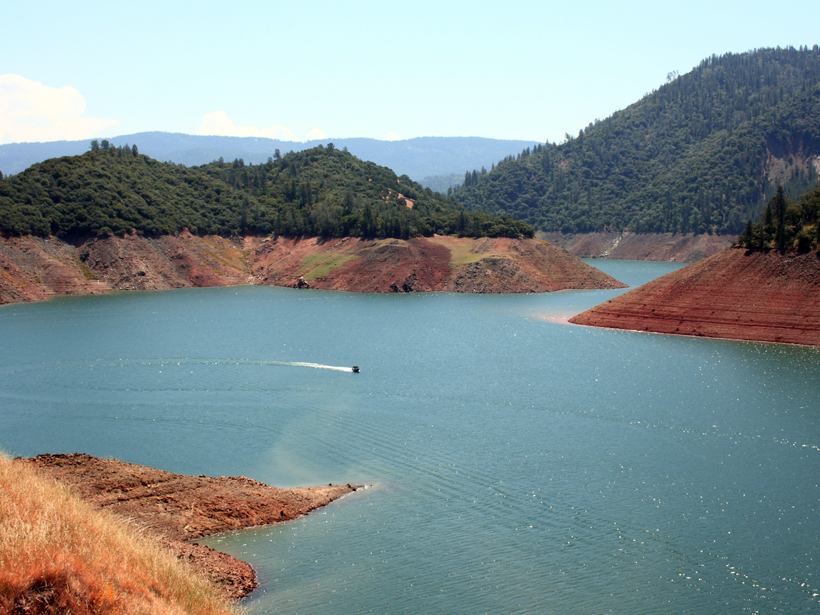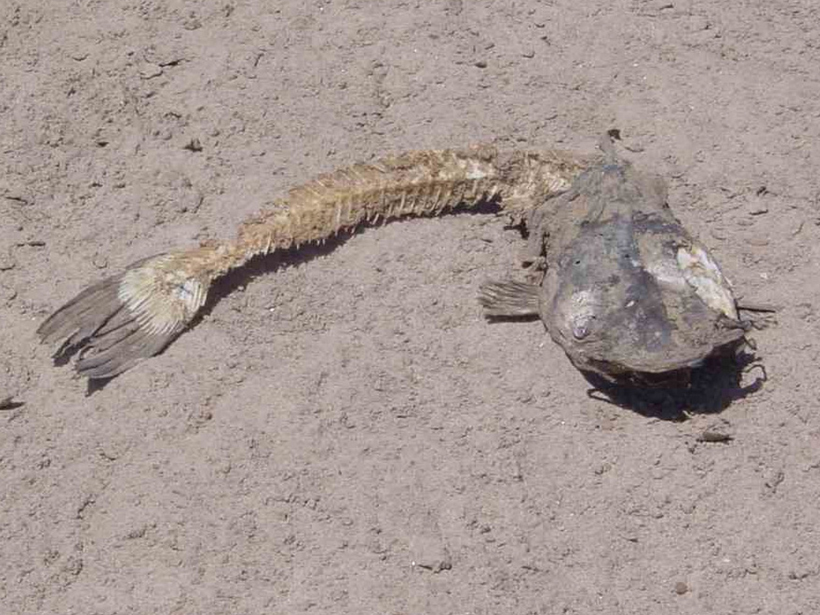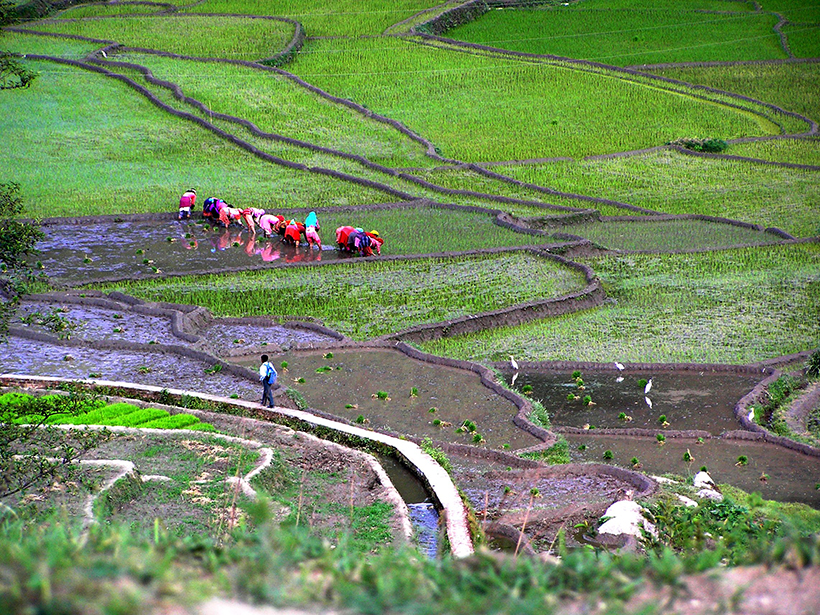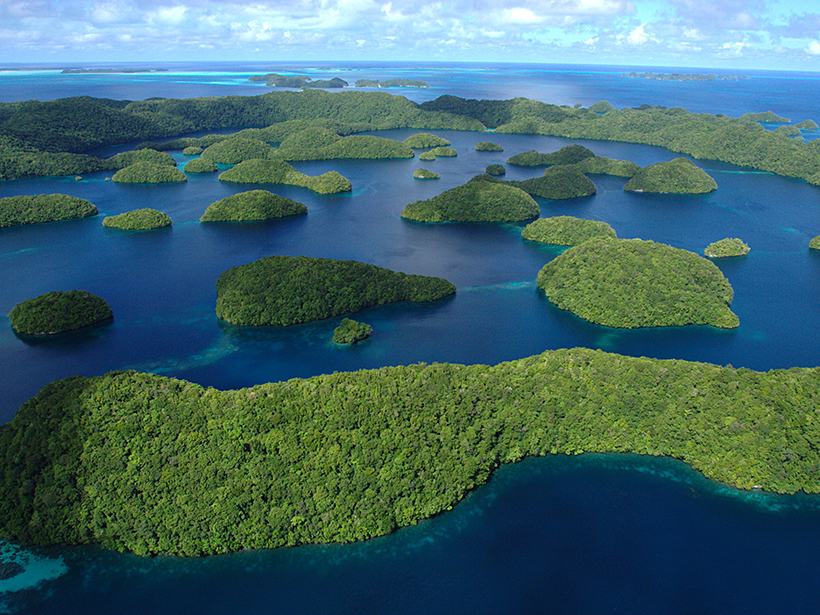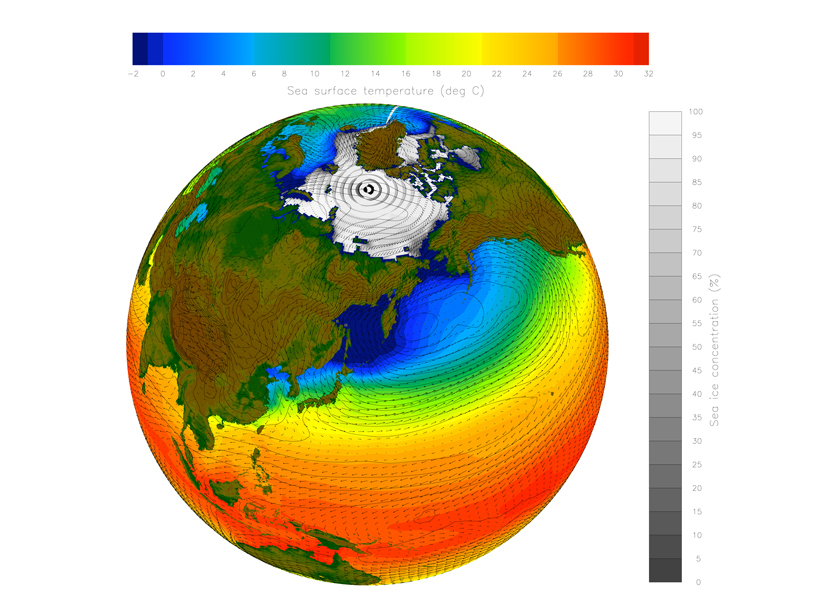In speeches and planned visits to a threatened village and a receding glacier, President Obama makes the case that global warming is happening now and warrants immediate action.
Climate Change
Surface Climate Processes Keep Earth's Energy Balance in Check
Models show that an abrupt increase in carbon dioxide emissions would trigger feedback processes that would change Earth's hydrological cycle.
Does U.S. Hurricane Rating Scale Get the Danger Right?
Some scientists think it's time to retire the Saffir-Simpson scale and start fresh.
Global Warming Intensifies Drought Conditions in California
The rise in global temperatures has amplified naturally occurring drought conditions in California and has increased the chance of severe droughts in the future.
Chinese Cave Inscriptions Tell Woeful Tale of Drought
Researchers use the graffiti to extrapolate future drought risk in central China.
Priorities for Antarctic Research: Glaciers, Genomes, and Cosmic Waves
The next decade of research should focus on the need to understand the changing Antarctic environment and how organisms adapt to it, a high-level report says.
How Can We Better Understand Low River Flows as Climate Changes?
When rivers run low, they threaten ecosystems, economies, and the communities who depend on them. Scientists need to determine how climate change alters this process, but to do so, they'll have to abandon a long-held assumption.
Sharing Climate Information in the Himalayas
International Conference on Climate Change Innovation and Resilience for Sustainable Livelihood (ClimDev15 Conference ); 12–14 January 2015, Kathmandu, Nepal
Focusing Attention on Climate Change and Pacific Island Nations
The 2014 Pan Pacific Partnership on Climate Change Adaptation; Taipei, Taiwan, 29 September to 2 October 2014
Future Directions for the World Climate Research Programme
The worldwide climate research community has talent, dedication, and a clear sense of knowledge gaps. It needs to close those gaps and convey its messages effectively to user communities.

